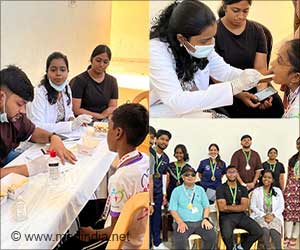Premier Dalton McGuinty of Ontario in Canada announced a $4-million organ donation strategy Friday that includes the expense reimbursement policy.
"Too many Ontarians face an agonizing wait for an organ that could save their life," said McGuinty.This week, 1,743 patients are waiting for a transplant in the province.
The government's organ-donation strategy will provide funding to reimburse living donors for pre-approved expenses, such as meals, accommodation and travel expenses and provide hospitals with information to identify people who wish to donate their organs after death to help ensure their wishes are respected.
"Organ donation saves hundreds of lives each year across Ontario, yet there are not enough available donors to meet the demand for organ transplants," said Health and Long-Term Care Minister George Smitherman, who said the program "will make the province's organ donation system more effective so we can save more lives in the future, particularly through support for living donations."
Across Canada, 198 people died while waiting for a transplant last year, according to the Canadian Institute for Health Information. Most of those patients needed either a kidney or a liver.
The organ donation strategy follows recommendations made in April by the Citizens Panel on Increasing Organ Donations which was established by the provincial government in 2006 to find out what Ontarians think about the organ donation.
Advertisement
Donors interviewed by the citizens panel said they had no regrets about their decision and that they would donate again.
Advertisement
Mitigating expenses as a barrier to donation means there is potential to retain 65-70 donors each year in Ontario who otherwise might have backed out, and it might motivate more donors to step forward. (There were 274 living donors in 2006.)
Aside from improved quality of life for recipients, there are enormous savings to be realized. The citizens panel reported it cost $30,000 to $50,000 less each year to maintain a transplant patient than it does to support a dialysis patient. With 9,000 patients receiving dialysis, the health-care system could save hundreds of millions of dollars.
McGuinty went to the Trillium Gift of Life Network in Toronto to announce his new measures.
Most important in the changes is a decision by the government to give the Trillium Gift of Life Network and the province's hospitals access to an Ontario Health Insurance Plan (OHIP) database of citizens who have consented to be organ donors.
There are only 1.5 million people on the list right now, according to the Ministry of Health. But that number is expected to build as people renew their OHIP cards, look over organ-donation material sent with the renewal applications, and agree to become donors.
Ontario residents renew their health insurance cards every five years.
The biggest problem with organ donation in Ontario is that almost half the families of eligible donors refuse to consent to donation.
The current organ-donor card system is almost useless because, in the sudden accidents and illnesses that involve an eligible donor -- patients who have functioning organs but are brain dead -- the card is nowhere to be found.
Frank Markel, president of the Trillium Gift of Life Network, said his agency's staff and hospital staff will have 24-hour access to a growing database of willing donors. He said it will be easier for staff to approach families, and for them agree to donate, when the consent information is readily available on an electronic registry.
Until yesterday, the government had refused to give Trillium access to the OHIP database out of concern of privacy issues.
"We think it is a really big deal. They've seen the light," said Mr. Markel, describing the OHIP registry as "a basic building block" for increasing donation. "We think it will help enormously."
As well, Trillium will establish a new database of couples where one partner needs a kidney but the other partner does not have a compatible blood type to allow a donation.
By pooling possible donors and recipients on a database, blood matches could be found, leading to perhaps an additional 20 or 30 kidney transplants a year in Ontario.
The government is also planning a public education campaign on organ donation, with a component especially tailored to high school students.
McGuinty said he wants the province's young people to go home to their parents and talk about the difficult topic of donation, knowing that more than 1,700 Ontario residents are "waiting, hoping and praying for a donor."
Those who die and give their organs to someone in need "are our heroes," he said.
Source-Medindia
GPL /J





